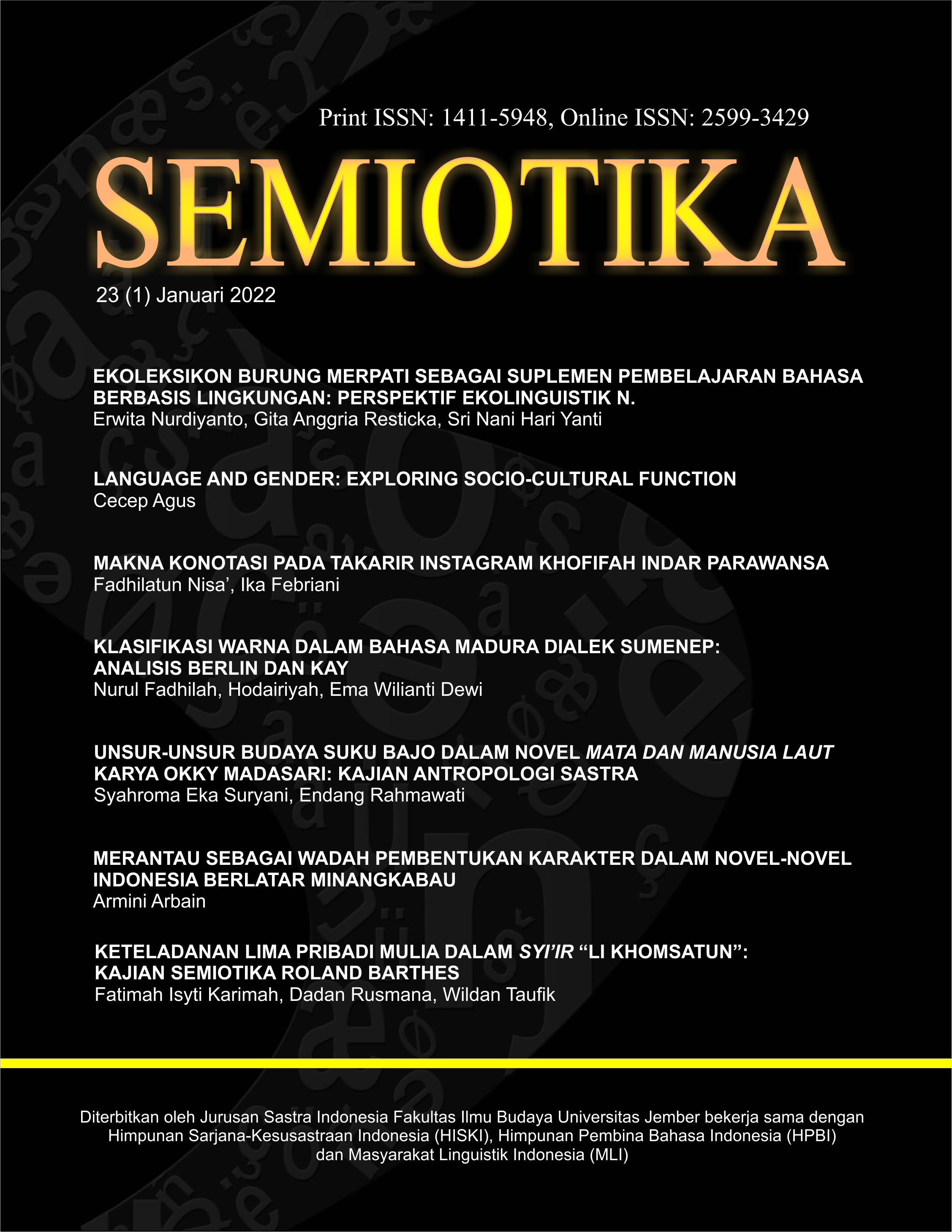LANGUAGE AND GENDER: EXPLORING SOCIO-CULTURAL FUNCTION
DOI:
https://doi.org/10.19184/semiotika.v23i1.24658Keywords:
gender and language, socio-cultural, mixed talkAbstract
There have been numerous studies investigating the relationship between language and gender. Some of the studies aim at analyzing language differences used by men and women on some features such as syntax, lexicon, phonology, and conversation analysis. Meanwhile, the others focus on the leverage of gender differences related to establishing and controlling the power inequality. This paper attempts to explore socio-cultural function inclusion in language development studies. This study was ethnographic classroom in nature, observing two student classes of Cirebon Invada High School. For detailed analysis, their mixed-gender classroom conversations were thoroughly chosen employing dynamic approach for a more inclusive socio-cultural function. The result of the study reveals that power cannot be built through gender differences without social aspects between both genders. Social dimensions namely functionality, economic status, power, network, and identity significantly affect language users in mixed talks. The respect for each other is salient, meanwhile, talk dominance is moderately declining. This indicates that gender is not the key factor in language uses differences, there is also another determinant factor such as social dimension. In pedagogy, these findings made a mojor contribution to an educational institution and all language learning activities particularly to the English language teaching activity by providing a balance treatment to both gender.
Downloads
Downloads
Published
Issue
Section
License
SEMIOTIKA has CC-BY-SA or an equivalent license as the optimal license for the publication, distribution, use, and reuse of scholarly work. Authors who publish with this journal retain copyright and grant the journal right of first publication with the work simultaneously licensed under a Creative Commons Attribution-ShareAlike 4.0 International License that allows others to share the work with an acknowledgment of the work's authorship and initial publication in this journal.
Attribution-ShareAlike
CC BY-SA


